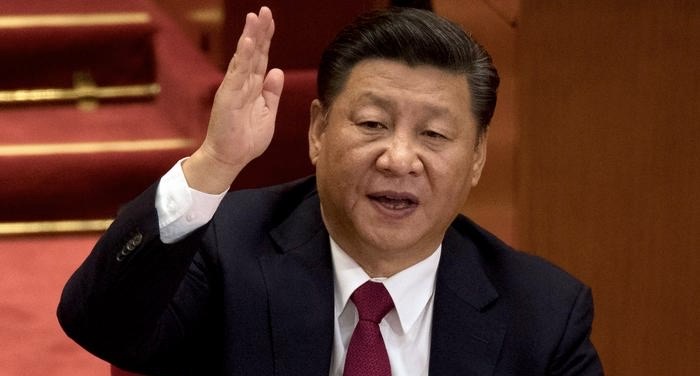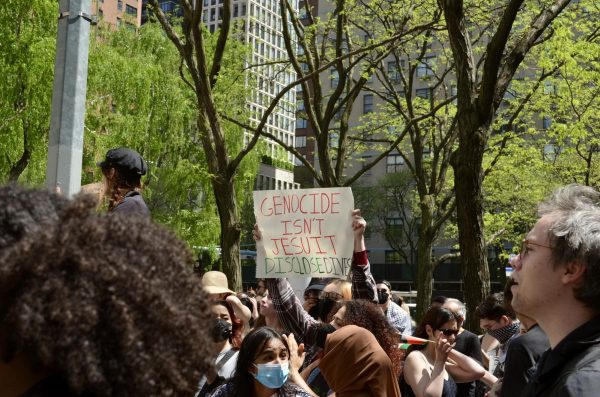China and the U.S Struggle to Make Amends
In the past three years, the Chinese Communist Party and the United States government have become increasingly hostile. Accusations over the origin of COVID-19, acts of espionage put into public display and the power struggle in Taiwan are all prime examples of how our nation’s relationship with one of its most threatening enemies is getting too volatile for either side to sustain meaningful or reasonable diplomatic relations.
When the British government handed over Hong Kong to the CCP in 1997, it ended a 99-year lease through which the Chinese allowed British rule on the northern fringe of the tropical zone. Because of how territorial the Chinese are of lands they consider their own, this was a major win for the Chinese because they stripped a former empire of one of the few lands that they were able to still champion. Moreover, this handover and return of land, despite minor concessions, is the best example to introduce the Chinese mentality of today; win big, embarrass enemies and gain further power.
Similarly, the Chinese see the lands of Taiwan as their own and would prefer to have self-governance over the island as opposed to dealing with a sovereign nation and government that is backed by capitalist allies and natural Chinese enemies in the West. China sees Taiwan as a breakaway state, Chinese President Xi Jinping repeatedly stating he will use whatever means necessary to ensure that China reunifies with Taiwan. However, this issue goes beyond the question of soil and delves into the topic of exportation.
The Chinese government is determined to see itself as an international influence and exporter of ideas, culture and values. Because of their already-bolstered stance as the world’s manufacturer, their attitude toward foreign nations and governments tend to be one that you would typically find in a boardroom and not in a diplomatic setting. Needing to get out of talks or discussions with fewer concessions than gains, or any move that might threaten their total gains are those that would anger the Chinese. A recent example of this would be former Speaker of the House, Nancy Pelosi’s (D-Calif.), two-day Taiwan trip where she caused a stir and brought about the question of Taiwanese independence and the measures the Chinese government will take to ensure their recovery of the island, despite reaffirming American support for Taiwan and executing our government’s stance on the issues relating to Taiwan.
However, this debate over Taiwan and the Chinese question over the legitimacy of their government is something that is not new in regard to vivifying the tensions between the government of the United States and the Chinese, as there are many other recent factors at play that threaten the stability and peace of not only our nation but the world’s.
Secretary of State Anthony Blinken is at the center of this question as of late. In the past four weeks, the question of how to act in response to the recent Chinese-tied spy balloons entering United States airspace and gathering intelligence over sensitive military installations in states such as Montana, South Dakota and Alaska has been afoot. President Biden’s quick and decisive response to the balloons is notable, and the actions taken have been praised by Republicans and Democrats alike for protecting national security. The interest of American safety has been established by the Biden administration’s actions, and a line in the sand has been drawn. However, the greater question as to whether or not the actions taken are sufficient to deter further Chinese aggression toward America is in play.
Secretary of State Anthony Blinken is at the center of the questions being asked as his visit to China has been postponed since the recent aggressions have been unveiled. Further, Blinken hasn’t apologized or rolled back any of the actions taken or statements made by government officials, stating, “We haven’t heard anything that provides any kind of a credible explanation for what this balloon was. The U.S. stands firmly behind our assessment.” Despite this stance, diplomat and state councilor Wang Yi met with Blinken and though the two have not made a roadmap for how to trek past these recent revelations, the Chinese are finding new ways to force the U.S.’s hand and put us in a weaker position compared to the Chinese, themselves, looking weak and approaching the table looking sheepish and embarrassed as this situation might otherwise demand and many Americans or bystanders of the situation would expect.
One outlet that the Chinese are utilizing to execute this strategy is their diplomatic and military alignments with Russia. Embattled in Ukraine, Russia has recently been at the center in the question of Chinese-U.S. relations as the question over the true extent of Chinese involvement in the Ukrainian war has been revealed to be more meaningful than previously thought, and as sources close to China indicate that it is highly likely that lethal military aid could be arriving in Russia soon. Should this be the case, questions to our allies and many other sovereign nations who treat with Russia, namely those in the United Nations, will have to assess what to do in response to deter the Chinese and prevent further escalations.
Simply put, this issue is one that is deeper and has far more strings attached to it than what might appear at the surface. Americans do not wish for more unnecessary war as the echoes of previous conflicts in Afghanistan, Iraq or Vietnam are still very open wounds. The forcefulness of the Chinese is dependent on our reaction, and with such hostile and fast-paced times, owed in part to the on-demand nature of our society, it is something that we must reassess. No good actions are taken by any person or nation when adrenaline is pumping to an extent that is uncontrollable. It is because of this that if I were to suggest anything to the leaders of our nation in Congress, the President and Secretary Antony Blinken, I would tell them to value American interests, sovereignty, peace and allies first. We are stronger together, and thankfully, this seems to be the case proven in our climate today when debates or squabbles might attempt to pull us apart. We must continue to be active and aware in the face of demanding foreign adversaries who would wish none of these and see further conflict ensue, specifically China’s inexcusable acts or efforts.
Michael Duke, GSB ’26, is undecided from Scottsdale, Ariz.










